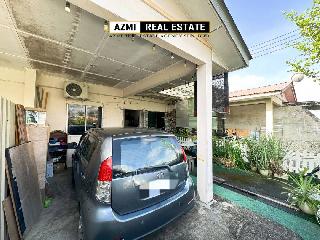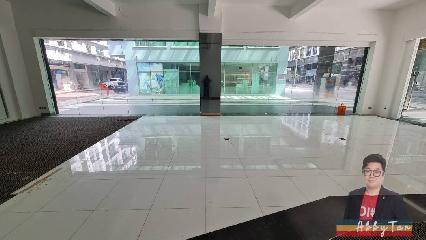If you are looking for a ready, more secure, and less speculative type of property, you would look into the secondary market rather than those that are still under construction offered by the housing developers. While the cost of entry is higher in the secondary market compared to buying from housing developers (for starters, immediate payment of stamp duty on transaction rather than issuance of the title later).
The legal documents and processes are different as well. Individual property sellers of constructed properties are not subject to the legal regime that regulates housing developments, there is no statutory prescribed format of agreement and the parties are free to the negotiate the terms and conditions of the Sale and Purchase Agreement – subject to certain commercial norms, banking practices and the application process of ownership transaction.
Here are the 5 things that you should consider if you are buying from the secondary market:
1. Title Issuance
Typically, in secondary property transactions, the very first question would be whether there is any title to the subject property or not. The more accurate version of the question is whether the title of the subject property has been issued at the time of the transaction. The key difference is the documents and the authority involved.
If the separate individual/ strata title has been issued for the subject property, the instrument of transferring ownership would be the Memorandum of Transfer (MOT), to be processed by the relevant Land Office. The securitization for the Bank in consideration of the loan given will be the registration of the Charge on the Title.
If the separate individual/ strata title has not yet been issued for the subject property, the transfer of ownership will be by way of a Deed of Assignment, to be recorded with the Developer pending the title issuance later. The securitization for the Bank in consideration of the loan given will be another Deed of Assignment but in favour of the Bank.
In both instances, there will be stamp duty payable to the government to recognize the transfer of ownership.
It is also important to note that some banks have policies against lending for properties that are yet to be issued separate titles over a certain period of time.
2. Title Tenure
Another FAQ by the Buyer is whether the subject property is freehold or leasehold. The answer to this question is not only critical in assessing the values of the subject property but relevant for the policy consideration of many banks and financial institutions. Some banks have a policy of not lending if the balance tenure of the leasehold property is shorter than a certain number of years.
Furthermore, dealings in leasehold property is most often subject to the consent of the State Authority thus requires more time to complete a transaction.
Buyers should also be aware of the process and requirements in extending the leasehold period and accept that it is ultimately based on the discretion of the authority.
3. Joint Inspection Before and After
Inspection of the subject property is crucial in making the decision to purchase, but not many are prudent enough to do one more round of joint inspection during the completion of the transaction and handing over of vacant possession. It is an important step to ensure all remaining issues on the conditions of the subject property can be dealt with between the parties.
If you were inspecting a furnished unit before the purchase but you are buying it unfurnished, you should be concerned of the condition after all the furnishings are removed.
If you are purchasing a furnished unit, you should be concerned whether you are delivered all the furnishing that you expect to remain in the property when you take over possession.
Compile a comprehensive list of furniture and fittings that are part of the purchase and consult your lawyer on the practical meaning of "as is, where isâ€. These are all important to prevent unnecessary disputes.
4. Realistic Expectation of Completion Date
As a rule of thumb, transactions in the secondary market take approximately 3 to 4 months to complete and to settle loan arrangements both ways. "3+1†is a common term used to describe the first 3 months of the interest-free transaction period and the automatic 1-month extension with the prescribed contractual interest.
Firstly, "3+1†is a not a mathematic equation but a simplified understanding of the transaction time that is subject to the sales and purchase agreement.
"3+1†shall only start ticking if the contract is unconditional. If it is subject to certain consents, there might be a further period allocated before the commencement of "3+1†after the procurement of these consents.
"3+1†can also be suspended and resumed in the process, similar to the "injury time†at the end of football matches. The parties are allocated a fixed time frame to deliver and perform certain contractual obligations and the delay or the extra time required to comply will be added back in. Therefore, "3+1†is not necessarily 4-months per say.
5. Post Completion Updating of Ownership Record
Most parties will be happily moving on after the transaction is completed with the payment of the full purchase, taking over of possession and formalization in the transfer of ownership. It is easy to forget to follow through on necessary updating of other relevant ownership records.
These include the change of the name for quit rent, assessment, management office and all the utility providers. Updating these records is useful in preventing any ownership disputes.

.jpeg)

_PH_Banner_(Desktop)(1200x180px).png)







_(2).png)
.jpeg)













